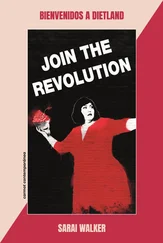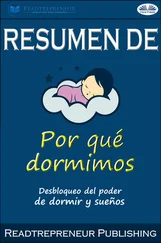If people asked about Plum, I’d say, “Plum who? Plum doesn’t exist.”
Burst!
• • •
IN THE HOURS AFTER SCHOOL, I didn’t see friends or attend clubs. I did my homework. I was always diligent about it, never needing to be prodded. In the afternoons, alone in the house on Harper Lane, I sat at the dining table with the curtains drawn and worked by lamplight. Sometimes people knocked on the door and threw rocks at the windows. They’d jiggle the door handles. I did my best not to be seen.
When my mother arrived home from work she’d fling open the drapes, allowing in the light. “The weather is beautiful,” she’d say, but I’d escape to the darkness of my bedroom. One day Delia suggested that I come to the restaurant in the afternoons to do my homework. I assumed she had discussed the plan with my mother, but she made it seem spontaneous.
Between lunch and dinner the restaurant was practically empty. Delia and I sat in a red vinyl booth in the back, she with her paperwork, me with my schoolwork, both of us sipping Diet Coke in tall glasses packed with lemon and ice. I would sit for hours doing geometry and reading thick Russian novels for my advanced literature class. Sometimes Nicolette would join us and she and I would work together on chemistry or French.
I’d been going to the restaurant every day for a couple weeks when I had an idea. I’d been secretly thinking of ways to pay for the Baptist Plan and wondered if I could use the restaurant to my advantage. I began to go into the kitchen and watch Chef Elsa prep for dinner, expressing interest, asking questions. As I’d hoped, she allowed me to help out, teaching me to chop and sauté. When I asked Delia for a job she agreed, and so for a couple hours a night I worked in the kitchen, where opera played on the radio.
After nearly a month on the job, with school about to let out for the summer, I had enough money to become a Baptist. When I told my mother, we argued. “It’s too radical,” she said. Behind closed doors, I heard her and Delia discussing it. “Be reasonable, Constance. Life isn’t easy for her,” Delia said. I would have gone even without my mother’s permission. I was seventeen years old and she couldn’t stop me.
There was a branch of Baptist Weight Loss near the restaurant, its windows covered in white curtains so no one could see inside. I had passed two health clubs, plus Nutrisystem and Jenny Craig, on my way there, but I wasn’t interested in any of them. The Baptist approach was the right one for me. On the first day of summer vacation, the money from my job in my wallet, I opened the door to the Baptist clinic and was greeted with a life-size portrait of Eulayla Baptist holding up her enormous jeans. Two chimes rang out as I entered, announcing the start of my new life.
With the other new members I was led to a darkened room, where we watched a documentary about Eulayla called Born Again. There was footage of Eulayla as Miss Georgia 1966 and of her competing in the Miss America pageant. After she married and had a baby she gained a lot of weight, which she couldn’t lose. She tried every diet, and even anorexia, but nothing worked long-term. On her child’s fifth birthday, she weighed more than ever. The former beauty queen became suicidally depressed and begged her husband to pay for stomach stapling surgery, but he refused. A neighbor had died after the same procedure and he wouldn’t let Eulayla risk her life.
Allen Baptist, founder of a thriving evangelical church in suburban Atlanta, which he hadn’t been allowed to name The Baptist Church for legal reasons, was devoted to his wife and desperate to help her. He hired his cousin to move in with the family, to cook for Eulayla and make sure she didn’t eat too much. He decided she needed to be completely removed from the world of food. His cousin prepared all of Eulayla’s meals so she didn’t have to shop for food or go into the kitchen. Allen Baptist even took the drastic step of padlocking the refrigerator shut. He kept Eulayla away from restaurants and she stopped socializing with friends and even attending church. Rumors spread around the neighborhood that Eulayla was dead.
After nine months of hell, with Eulayla eating nothing but hardboiled eggs and lean roast beef and cottage cheese with canned peaches, she lost the 115 pounds that had been ruining her life, likening the process to rebirth. That’s when she felt a calling to help others overcome their appetites and realize their full potential, as she had done. [1] Within a year, Mama began to regain the weight she’d lost. Since she had invested our family’s savings in Baptist Weight Loss, Daddy foresaw disaster and agreed that Mama needed her stomach stapled. It was the only answer. After the surgery, Mama developed an anal leakage and had to wear diapers. ( Adventures in Dietland, Chapter 1: “The Birth of Verena, the Birth of an Empire,” p. 27.)
With her husband’s reluctant support, Eulayla conceived of an idea to start a diet clinic that would provide its patrons with low-calorie shakes, frozen dinners, and a special exercise program. Baptists wouldn’t cook or grocery shop; they wouldn’t think about food at all, except when it was time to drink or heat up their next meal. The first Baptist Weight Loss clinic opened in Atlanta in 1978. By the late 1990s, when I was ready to join, there were more than a thousand branches worldwide.
When the documentary ended and the lights came back on, we waited for the orientation to begin. Meanwhile, the photo-bursting commercials played on a loop. [2] Baptist Weight Loss pioneered the “photo-bursting” technique. See J. Lucas, “Ripped to Shreds: Advances in Weight Loss Advertising,” Adweek, June 9, 1986. See also H. Whelan and M. Burns, “Baptist Weight Loss and the ‘Before and After’ Photograph,” Journal of Female Psychology 4, no. 2 (1993): 42–65. ( Adventures in Dietland, Chapter 1: “The Birth of Verena, the Birth of an Empire,” p. 54.)
There were only women in the group of new members, and several of them were quite slender. I didn’t understand why they were there, but they were all friendly with me, behaving as if we had something in common. [3] Memorandum: From senior vice president [name redacted] to Eulayla Baptist (October 24, 1982): “People who only imagine they’re fat are a huge market for us. Fat, thin . . . these are meaningless distinctions, except at the extremes. What is fat? What is thin? Who cares.” ( Adventures in Dietland, Baptist Weight Loss Internal Memo Index, p. 329.)
Our group leader, Gladys, arrived to introduce herself. She was a black woman with an old-fashioned bouffant-style hairdo. She wore pumps that made a squishing sound as she walked. She smiled nonstop as she handed out the binders and Baptist handbooks and laminated cards printed with the Baptist Oath, which we were supposed to put in our wallets and on our refrigerators:
Baptists must treat their bodies like temples. Successful Baptists must incorporate the Three Tenets into their lives. First Tenet: I will not pollute my body with fattening and unhealthy foods. Second Tenet: I will exercise regularly. Third Tenet: I will spread the Baptist message to others.
© Baptist Weight Loss, Inc.
I collected the handouts, cards, and pamphlets and placed them in my shiny new binder, so thrilled to be part of Eulayla’s family. That’s what she called us: a family.
After the meeting was under way, a woman rushed through the door, apologizing for being late and taking a seat next to me in the back row. Janine was tall and bigboned, with cottony blond hair, and her appearance shocked us all, as much as if she’d been naked. She was wearing a radiant dress, floral patterned, with pink tights and boat-size heels on her feet, like Minnie Mouse shoes. None of the other new Baptists were dressed in bright colors, but instead wore the depressing shades of an overcast day. Looking at Janine was like looking directly into the sun.
Читать дальше












